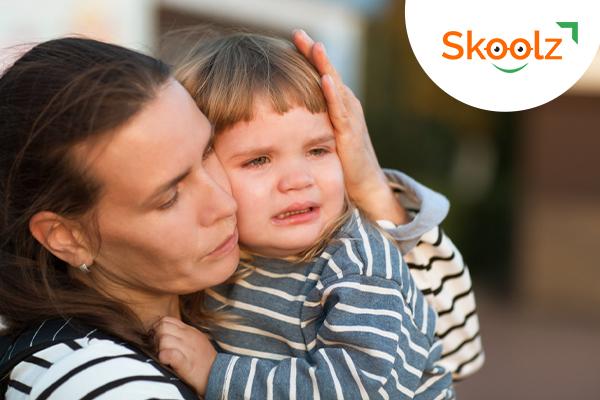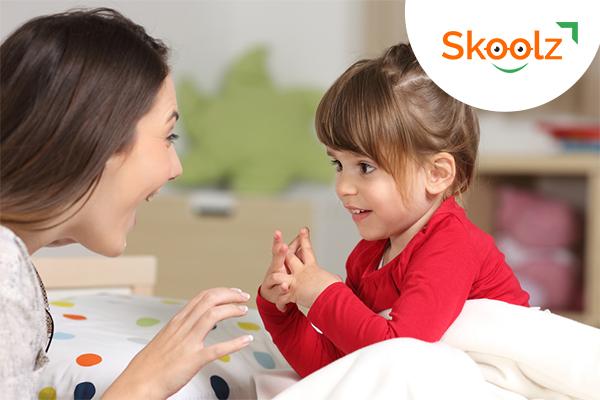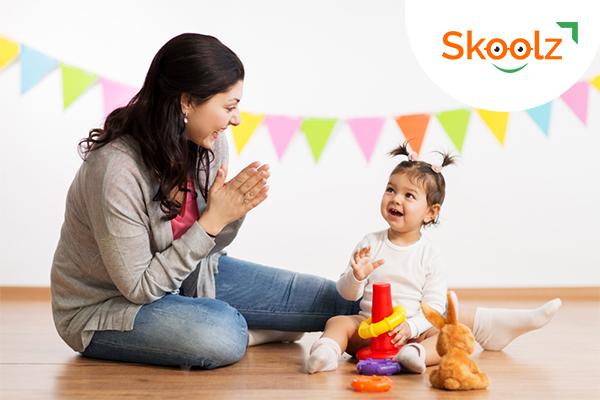
Did You Know How to Deal with Toddler Social Anxiety? A Guide for Parents
Did You Know How to Deal with Toddler Social Anxiety? A Guide for Parents
As parents, it's natural to be concerned about our children's well-being, including their social and emotional development. Toddler social anxiety is a common issue that can affect their interactions and overall happiness. This blog will explore effective strategies and practical tips to help you navigate and support your toddler through social anxiety.
Effective Strategies to Manage Toddler Social Anxiety:
Discover practical tips to help your child navigate social anxiety:
1. Gradual Exposure: Introduce social situations in small steps to build confidence.
2. Supportive Environment: Create a safe and nurturing home environment that encourages open communication.
3. Positive Reinforcement: Boost self-esteem by highlighting strengths and celebrating small victories.
4. Relaxation Techniques: Teach calming exercises like deep breathing and visualization to reduce anxiety.
5. Professional Support: Recognize when it's necessary to seek guidance from a pediatrician or mental health professional.
Practical Strategies for Managing Toddler Social Anxiety:
To effectively manage your toddler's social anxiety, consider implementing the following strategies:
1. Understanding Toddler Social Anxiety:

First, let's understand what toddler social anxiety entails. It goes beyond shyness and involves excessive fear or discomfort in social situations. Recognizing the signs, such as excessive crying, clinging, or avoiding social interactions, can help you identify if your child is experiencing social anxiety.
2. Creating a Supportive Environment:

One of the key ways to address toddler social anxiety is by creating a nurturing and supportive environment. Encourage open communication, validate their feelings, and provide reassurance. Let them know that it's okay to feel nervous and that you're there to support them.
3. Gradual Exposure:

Gradual exposure to social situations can help your child build confidence and overcome anxiety. Start with small, familiar settings and gradually increase exposure to new people and environments. Patience and reassurance are essential during this process.
4. Teaching Coping Strategies:

Introduce age-appropriate coping strategies to help your child manage their anxiety. Deep breathing exercises, storytelling, or using a calming sensory item can provide a sense of control and relaxation. Encourage them to express their feelings through words or art.
5. Positive Reinforcement and Celebrating Small Victories:

Praise your child's efforts and small achievements in social situations. Celebrate even the tiniest steps they take to overcome their anxiety. This positive reinforcement boosts their self-esteem and encourages further progress.
6. Seeking Professional Support:

If your child's social anxiety persists or significantly impacts their daily life, seeking professional support is crucial. Consult a pediatrician or mental health professional experienced in working with young children. They can provide specialized guidance and interventions tailored to your child's needs.
7. Remember, Each Child is Unique:

It's important to remember that every child is unique, and there is no one-size-fits-all approach to dealing with toddler social anxiety. Be patient and understanding as you navigate this journey with your child. Your love, support, and consistent effort will make a positive difference in their growth and well-being.
Conclusion:
Dealing with toddler social anxiety requires patience, understanding, and a proactive approach. By creating a supportive environment, gradually exposing your child to social situations, teaching coping strategies, and seeking professional support when needed, you can help your child overcome social anxiety and thrive. Remember, you are not alone in this journey. Reach out for support and trust in your ability to guide your child toward greater social confidence and emotional well-being.
FAQs about Toddler Social Anxiety:
Q1: Is toddler social anxiety a common issue?
A: Yes, toddler social anxiety is relatively common. Many young children experience varying degrees of social anxiety, which can manifest differently in each child.
Q2: What are the common signs of toddler social anxiety?
A: Signs of toddler social anxiety may include excessive crying or clinging in social situations, avoiding eye contact, reluctance to engage with unfamiliar people or environments, and fear or distress when separated from caregivers.
Q3: How can I differentiate between normal shyness and social anxiety in my toddler?
A: While shyness is a normal personality trait, social anxiety involves intense fear or discomfort. If your child consistently avoids social interactions, experiences significant distress, or their anxiety interferes with their daily life, it may indicate social anxiety rather than typical shyness.
Q4: Can toddler social anxiety be outgrown naturally?
A: In some cases, toddler social anxiety may improve as children grow and develop their social skills. However, for others, it may persist or worsen without intervention. Early recognition and appropriate support can significantly help in managing social anxiety.
Q5: How can I support my toddler with social anxiety at home?
A: Creating a supportive environment, encouraging gradual exposure to social situations, teaching coping strategies, providing reassurance, and celebrating small achievements can all help in supporting your toddler through social anxiety.
Q6: When should I seek professional help for my child's social anxiety?
A: If your child's social anxiety significantly impacts their daily life, causes extreme distress, or interferes with their ability to participate in normal activities, it's advisable to seek professional help. A pediatrician or mental health professional can provide guidance, assess the severity of the anxiety, and recommend appropriate interventions.
Q7: Are there any long-term effects of untreated toddler social anxiety?
A: Untreated social anxiety in toddlers can potentially impact their social and emotional development in the long run. It may affect their self-esteem, relationships, and overall well-being. Early intervention and support can help prevent or minimize these long-term effects.
Remember, if you have specific concerns about your child's social anxiety or any related issues, it's always best to consult with a healthcare professional or pediatrician who can provide personalized advice and guidance based on your child's unique needs.
You may also like to learn about development skills related to toddlers and how to develop them.
Disclaimer: The information in the blogs is intended to offer general guidance on various aspects of toddler development. However, it is essential to note that every child is unique, and individual circumstances may vary. The content in our blogs should not be considered a substitute for professional medical advice. If you observe any critical symptoms or have specific concerns about your child's health, we strongly advise consulting with a qualified pediatrician. We do not assume any responsibility or liability for actions taken based on the information provided. Always seek the expertise of a medical professional for any specific concerns or medical attention your child may require. By accessing our toddler blogs, you acknowledge the importance of consulting with a pediatrician for any critical symptoms or concerns.
 Written by
Written by
Swati Sahu
Digital Marketer

Did You Know How to Deal with Toddler Social Anxiety? A Guide for Parents
As parents, it's natural to be concerned about our children's well-being, including their social and emotional development. Toddler social anxiety is a common issue that can affect their interactions and overall happiness. This blog will explore effective strategies and practical tips to help you navigate and support your toddler through social anxiety.
Effective Strategies to Manage Toddler Social Anxiety:
Discover practical tips to help your child navigate social anxiety:
1. Gradual Exposure: Introduce social situations in small steps to build confidence.
2. Supportive Environment: Create a safe and nurturing home environment that encourages open communication.
3. Positive Reinforcement: Boost self-esteem by highlighting strengths and celebrating small victories.
4. Relaxation Techniques: Teach calming exercises like deep breathing and visualization to reduce anxiety.
5. Professional Support: Recognize when it's necessary to seek guidance from a pediatrician or mental health professional.
Practical Strategies for Managing Toddler Social Anxiety:
To effectively manage your toddler's social anxiety, consider implementing the following strategies:
1. Understanding Toddler Social Anxiety:

First, let's understand what toddler social anxiety entails. It goes beyond shyness and involves excessive fear or discomfort in social situations. Recognizing the signs, such as excessive crying, clinging, or avoiding social interactions, can help you identify if your child is experiencing social anxiety.
2. Creating a Supportive Environment:

One of the key ways to address toddler social anxiety is by creating a nurturing and supportive environment. Encourage open communication, validate their feelings, and provide reassurance. Let them know that it's okay to feel nervous and that you're there to support them.
3. Gradual Exposure:

Gradual exposure to social situations can help your child build confidence and overcome anxiety. Start with small, familiar settings and gradually increase exposure to new people and environments. Patience and reassurance are essential during this process.
4. Teaching Coping Strategies:

Introduce age-appropriate coping strategies to help your child manage their anxiety. Deep breathing exercises, storytelling, or using a calming sensory item can provide a sense of control and relaxation. Encourage them to express their feelings through words or art.
5. Positive Reinforcement and Celebrating Small Victories:

Praise your child's efforts and small achievements in social situations. Celebrate even the tiniest steps they take to overcome their anxiety. This positive reinforcement boosts their self-esteem and encourages further progress.
6. Seeking Professional Support:

If your child's social anxiety persists or significantly impacts their daily life, seeking professional support is crucial. Consult a pediatrician or mental health professional experienced in working with young children. They can provide specialized guidance and interventions tailored to your child's needs.
7. Remember, Each Child is Unique:

It's important to remember that every child is unique, and there is no one-size-fits-all approach to dealing with toddler social anxiety. Be patient and understanding as you navigate this journey with your child. Your love, support, and consistent effort will make a positive difference in their growth and well-being.
Conclusion:
Dealing with toddler social anxiety requires patience, understanding, and a proactive approach. By creating a supportive environment, gradually exposing your child to social situations, teaching coping strategies, and seeking professional support when needed, you can help your child overcome social anxiety and thrive. Remember, you are not alone in this journey. Reach out for support and trust in your ability to guide your child toward greater social confidence and emotional well-being.
FAQs about Toddler Social Anxiety:
Q1: Is toddler social anxiety a common issue?
A: Yes, toddler social anxiety is relatively common. Many young children experience varying degrees of social anxiety, which can manifest differently in each child.
Q2: What are the common signs of toddler social anxiety?
A: Signs of toddler social anxiety may include excessive crying or clinging in social situations, avoiding eye contact, reluctance to engage with unfamiliar people or environments, and fear or distress when separated from caregivers.
Q3: How can I differentiate between normal shyness and social anxiety in my toddler?
A: While shyness is a normal personality trait, social anxiety involves intense fear or discomfort. If your child consistently avoids social interactions, experiences significant distress, or their anxiety interferes with their daily life, it may indicate social anxiety rather than typical shyness.
Q4: Can toddler social anxiety be outgrown naturally?
A: In some cases, toddler social anxiety may improve as children grow and develop their social skills. However, for others, it may persist or worsen without intervention. Early recognition and appropriate support can significantly help in managing social anxiety.
Q5: How can I support my toddler with social anxiety at home?
A: Creating a supportive environment, encouraging gradual exposure to social situations, teaching coping strategies, providing reassurance, and celebrating small achievements can all help in supporting your toddler through social anxiety.
Q6: When should I seek professional help for my child's social anxiety?
A: If your child's social anxiety significantly impacts their daily life, causes extreme distress, or interferes with their ability to participate in normal activities, it's advisable to seek professional help. A pediatrician or mental health professional can provide guidance, assess the severity of the anxiety, and recommend appropriate interventions.
Q7: Are there any long-term effects of untreated toddler social anxiety?
A: Untreated social anxiety in toddlers can potentially impact their social and emotional development in the long run. It may affect their self-esteem, relationships, and overall well-being. Early intervention and support can help prevent or minimize these long-term effects.
Remember, if you have specific concerns about your child's social anxiety or any related issues, it's always best to consult with a healthcare professional or pediatrician who can provide personalized advice and guidance based on your child's unique needs.
You may also like to learn about development skills related to toddlers and how to develop them.
Disclaimer: The information in the blogs is intended to offer general guidance on various aspects of toddler development. However, it is essential to note that every child is unique, and individual circumstances may vary. The content in our blogs should not be considered a substitute for professional medical advice. If you observe any critical symptoms or have specific concerns about your child's health, we strongly advise consulting with a qualified pediatrician. We do not assume any responsibility or liability for actions taken based on the information provided. Always seek the expertise of a medical professional for any specific concerns or medical attention your child may require. By accessing our toddler blogs, you acknowledge the importance of consulting with a pediatrician for any critical symptoms or concerns.
 Written by
Written by
Swati Sahu
Digital Marketer




